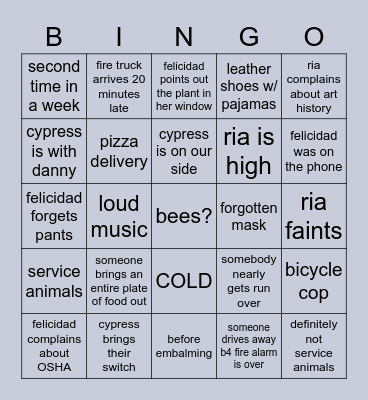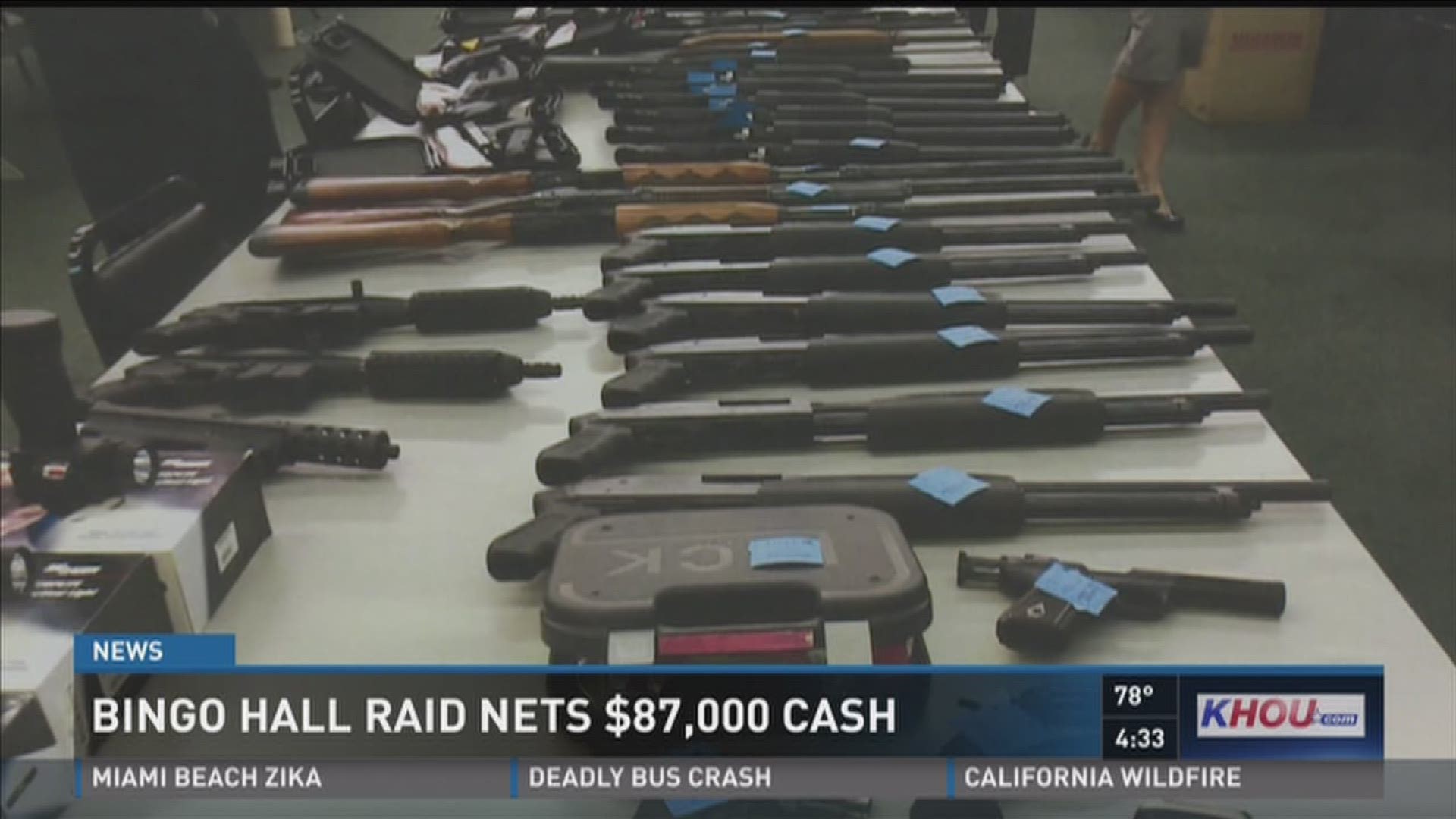Kennedy Bingo Hall
1 of 25 Show More Show Less 2 of 25 Harris County DA Devon Anderson, speaks during a media conference at Paradise Bingo Hall,1520 College Ave., Friday, Aug. 19, 2016, in South Houston. We're celebrating summer 2020 with a series of family-friendly Bingo Nights — streamed live through The Kennedy Center's Facebook. Play for prizes, laughs and to support essential services. Our Next live Bingo is Tuesday, Aug. Register Here. Let us take care of dinner! Soups 'N Such is offering Bingo dinner specials. On the heels of the U.S. Supreme Court’s refusal to wade into the Wampanoag casino case, tribal leaders said this week they are ready to move ahead with plans to build a bingo hall on the. Although the owners of the bingo hall, Robert Jones and Fred Kennedy, had a state license to run a bingo parlor, authorities claim that most of the money was coming from illegal eight-liners. Following the provincial measures announced in Ontario, Rama Gaming House will be temporarily remain closed, effective Monday, November 23. We have worked extremely hard to uphold the health and safety for our community and patrons during these trying times.
Charity bingo operators say their struggling operations may be pushed right out of business when Ontario's tough new anti-smoking law takes effect.
Bingo has long been a source of revenue for charities, but the industry has been in decline for the past 10 years.
Operators blame competition for gaming dollars from casinos, racetracks and slot machines for conditions that have seen about 140 bingo halls – more than half of the total in Ontario – close in the past 10 years.
Those now-shuttered bingo halls used to generate as much as $150 million a year for charities.
The situation is only expected to get worse when the bingo halls are forced to tell their clients, an estimated 70 per cent of whom are smokers, to butt out.
Legislation passed at Queen's Park this week will outlaw smoking in most indoor public places.
- FROM JUNE 8, 2005: Ontario passes tough smoking restrictions
Those new restrictions, say bingo operators, could be the last nails in their coffins.
Privately owned bingo halls are typically run in co-operation with charities, with the profits shared between the owners and sponsors.

But as more casinos continue to pop up, Jim Towie of Kennedy Bingo says bingo operators are facing a 'disastrous' decline in customers.

For Towie's business, that situation will get worse next year when it will have to close its designated smoking room to comply with the new provincial rules.

Charities say more bingo hall closures will only make their fundraising that much tougher.
The Toronto School of Art is one of 3,000 groups that have lost their bingo revenue over the last 10 years and are scrambling to find new sources of revenue.
'It's very, very difficult, particularly for the organization I work with, which isn't a medical or child or people in crisis [organization],' said school spokesperson Shannon Shields.
'As government funding has decreased, every household is being asked eight ways to Sunday to donate money, so the competition is fierce.'
Bingo operators have sought to remain competitive with casinos by applying for slot machine licences. So far, the province has turned down those requests.
- Long-running legal battle over casino rights ended this week with a clear win for the Aquinnah tribe.
- Mark Alan Lovewell
On the heels of the U.S. Supreme Court’s refusal to wade into the Wampanoag casino case, tribal leaders said this week they are ready to move ahead with plans to build a bingo hall on the Island. For their part, government leaders in Aquinnah raised a white flag on the long-running legal battles between the town and tribe, expressing guarded optimism that all sides can work together in good faith.
In a two-word order on Monday — “certiorari denied” — the Supreme Court left intact a decision last April from a federal appeals court, which said the 1988 Indian Gaming Regulatory Act superseded the 1987 Massachusetts Settlement Act’s provisions restricting gaming.
It was the last legal hurdle for the Wampanoag Tribe of Gay Head (Aquinnah) tribe to clear before it could begin building a class two electronic bingo hall on the Vineyard.
Speaking to the Gazette by phone Wednesday, an upbeat tribal chairwoman Cheryl Andrews-Maltais said the tribe will go forward with a “modest” gaming facility on tribal lands. The location has not been selected, but Ms. Andrews-Maltais said the tribe would not convert its tribal community center in Aquinnah as originally planned. She also confirmed that potential financial backers have come forward, and said the tribe will take its time to develop the facility and be sensitive to its Island neighbors.

“We’re not going to build a monstrosity,” she said.
The long-term goal, Ms. Andrews-Maltais said, is to build a full casino on the mainland. “That had always been our long-term goal,” she said.
“We’re determined, slow and steady, but we will finish the race,” she added.
Meanwhile, following an executive session Wednesday evening with the three Aquinnah selectmen and town administrator Jeffrey Madison, longtime town attorney Ronald H. Rappaport had diplomatic words.
“We want to congratulate the tribe. They won the lawsuit on the right to game,” he said. Mr. Rappaport said he had been contacted by attorneys for the tribe and asked to begin a dialogue.
“The selectmen have authorized me to do that,” he said. “Then I will report back to the selectmen and we’ll take it from there. We’re hoping that the discussions will find common ground. We’re not looking at lawsuits right now.”

Selectman and board chairman Jim Newman also said the town plans no further legal action.
“The ball stops at the Supreme Court,” Mr. Newman said.
This is the first time Ms. Andrews-Maltais has publicly addressed the tribe’s gaming plans since she was elected chairman of the tribe for the second time in November 2016.
As late as mid-2015, tribal leaders told the Gazette that they intended to convert the then-unfinished 6,500-square-foot community center for electronic gaming.
The building was ultimately completed for its original purpose, and Ms. Andrews-Maltais this week the tribe has ruled it out as the site of a gaming hall. Instead, she said, there are other locations on tribal lands in Aquinnah that are under consideration, though she declined to say what they are.
Kennedy Road Bingo Hall
As for a mainland casino, Ms. Andrews-Maltais said she felt the Vineyard Wampanoags had not been treated well by the state, which passed over the Vineyard tribe in granting a casino license to the Mashpee Wampanoags after casino gambling was made legal under former Gov. Deval Patrick. (The Mashpee tribe’s $1 billion casino project in Taunton has ground to a halt over a challenge from residents in federal court.)
Now, she said the tribe is assessing its options.
Kennedy Bingo Hall
“We’re looking at everything and anything. Everything is on the table nothing is off the table,” she said, suggesting that the Island bingo parlor could be temporary if the tribe was able to secure a full-fledged casino off Island.
“Pardon the pun, but we have to work with the hand that we’re dealt,” she said.
Ms. Andrews-Maltais said the tribe had already been working with potential financial backers, but after Monday, “it’s exploded exponentially,” she said. She emphasized that whatever the tribe builds, it intends to be sensitive to neighbors in Aquinnah. She expressed gratitude to the tribe’s supporters and partners in the litigation, and said she plans to keep the Island community informed through news outlets. “The community as a whole has a right to know,” she said.
She said the tribe would work with town and Island officials, but was clear that the tribe had the ultimate authority for the gaming facility, noting that the tribe has its own strict building codes and regulations and the federal statute allowing Indian gaming provides strict oversight.
“We’re not wards of the town, we have sovereignty,” Ms. Andrews-Maltais said. “We are a government with sovereignty but we also have a responsibility for safety.”
The U.S. Supreme Court’s decision earlier in the week was not unexpected by gaming opponents.
“We’re disappointed,” said Mr. Rappaport. “They only grant certiorari in very few cases.”
Larry Hohlt, president of the Aquinnah/Gay Head Community Association, echoed the disappointment and questioned the practicality of a bingo parlor in Aquinnah.
“I think it’s a wrong decision on the merits, frankly, but realistically I’m not surprised,” he said, adding: “In a rural town on an Island, inaccessible, only one two-lane road in, [a gambling hall] makes no sense.”
But tribal leaders have long pointed to a bingo hall as an engine of economic growth, a source of jobs and stream of revenue for a variety of tribal programs. A 2015 tribe-commissioned report found that a facility with 300 machines could raise nearly $5 million annually. Opponents have questioned the figure, as well as the promise of other benefits.
The bingo project has split the tribe’s membership, with a large contingent of Island members opposing it on the Vineyard. Some say little detailed information about the plan has been shared with the membership.
“The general consensus is we really don’t have enough information from the leadership as to what they are up to,” said Donald Widdiss, former chairman of the tribe and a critic of the bingo parlor. “So I hesitate to even speculate at this point, other than the basic conditions for a successful enterprise in Aquinnah don’t exist, starting with infrastructure and the ability to alleviate obvious problems, such as traffic and impact.”
Gaming experts appear to split about the financial prospects for a bingo parlor, especially at the remote western edge of the Vineyard.
Also factors are the big, glitzy casino projects in Boston and Springfield slated to open in the next year or so, both of which will gain a lion’s share of gamblers’ attention. In addition, any day-trippers interested in electronic bingo machines already have an option that requires no ferry ride: Plainville’s Plainridge Park Casino has 1,250 slot machines.
“The problem with this is how many casinos can you support and how much market are you going to have,” said Richard McGowan, an economics and management professor at Boston College. “All throughout New England you can’t get away from casinos,” he said.
Paul DeBole, a Lasell College political scientist, said a bingo parlor that operates at peak volume only six or seven months a year may not be not optimal, but with a proposed 300 machines, he said the estimate of $5 million per year is plausible. The facility would have a “captive audience,” he said, of seasonal residents and even full-time Islanders during that time. “The bar is low for them for a successful venture, and I think those numbers are viable,” Mr. DeBole said. “I don’t think they are looking to make a killing. It’s for economic self-sufficiency.”
Ms. Andrews-Maltais echoed the notion that the tribe’s goal is to provide jobs, education, housing and health care for its people, and said the court ruling was a moment of celebration for the tribe. “It was a great and historic day for the Aquinnah Wampanoag people!” she said in a statement.
Steve Myrick contributed reporting.